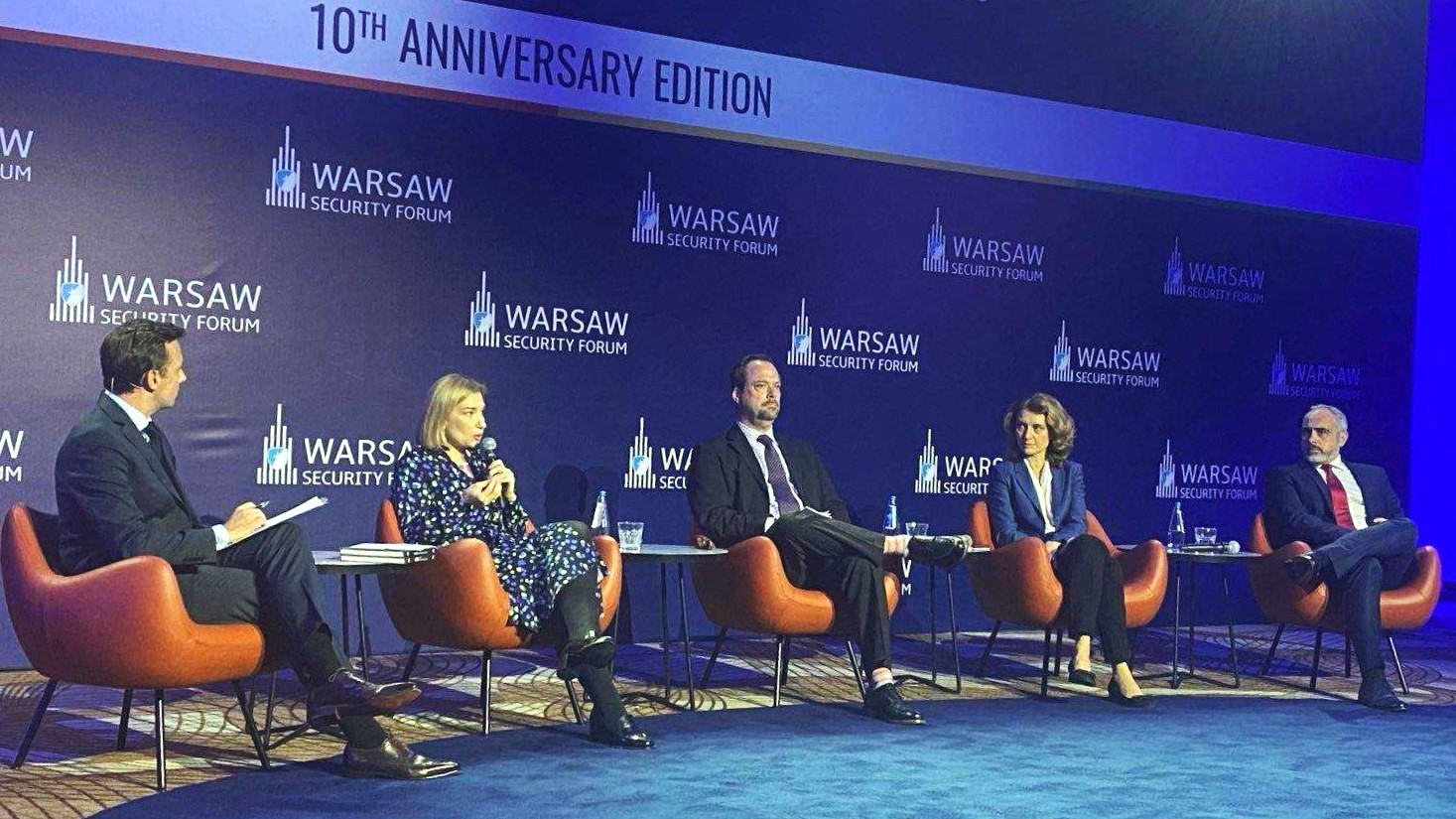When we talk about the tools, we need to understand how, when, and why we are going to use them. After all, e-voting may look attractive to address some technicalities in the organization of the voting procedure. However, elections without political competition during the war will only create fake democracy. It was highlighted by the Chair of the Board of the Civil Network OPORA, Olha Aivazovska, during the discussion “Elections in the Digital Era: Opportunities and Challenges” as part of Warsaw Security Forum on October, 4.
“In the current Ukrainian context, we live in a dangerous period of the hot phase of the war, and we have our Constitution and the martial law legislation that set certain restrictions for human rights and freedoms. It is clear that in line with international law standards, Ukraine set back from its commitments in terms of human rights protection because of the war. Because today, the key priority for Ukrainian society and state is security. It is the defense of territory, the liberation of territory, control over territories to protect the rights of people currently residing under the occupation. Election process is about freedoms. Since it is ineffective to talk about 100% democracy today, during the hot war phase,” she highlighted.
According to the expert, Ukrainian civil society, specifically over a hundred of CSOs signed a joint statement declaring that no double standards games shall be played during the war. “We cannot run electoral processes without securing freedoms because such elections will not be free and fair as a huge number of people are not going to be included in the process. We have 7 166 mln people staying out of country – and it is a huge challenge to engage them. I do not only mean the formal voting process because it is a rather technical matter. It is vital to have them included into election campaign: to run as candidates, to promote their vision of the country’s recovery and growth, to design returnee support programs, to have a representative parliament when 20% of Ukrainian people stay abroad. It is a new challenge for us to address. Moreover, we have over 5 mln internally displaced persons. They are highly mobile within the country. In addition, we have over 1 mln members of the military who are now in combat. They cannot be included on the voting stage only, without being able to participate in all political processes. After all, they are the new elite in Ukraine. we also have volunteers who are working on a daily basis to serve their society to help the country survive,” said Aivazovska.
According to her, political process shall be open, transparent, and, most importantly, politically competitive. “We do not want to have fake democracy, like in Russia. Because for 20 years, Russians have been voting for their candidates only formally, when the candidate did not matter because the Central Election Commission could change it all. This is what fake democracy is. We do not have to use any technical tools to produce fake democracy without political competition and real participation of all Ukrainian people wo must be part of political cycle. E-voting looks like the easiest way to resolve the participation issue in the process of voting. However, casting ballots does not mean the participation in the political cycle and process. Moreover, we have the enemy, Russia, who is well equipped and developed in technical aspects. Russia orchestrated over 1,500 attacks at Ukrainian critical infrastructure with the ICT tools specifically. That is why it is a critical topic to discuss, how to think about technologies and not disregard the philosophical side of democracy, to make an impact, to have impactful voters and influential candidates engaging in the entire political process,” she emphasized.
You can find the complete video recording of the discussion in English at the link starting from 3:04:55:
